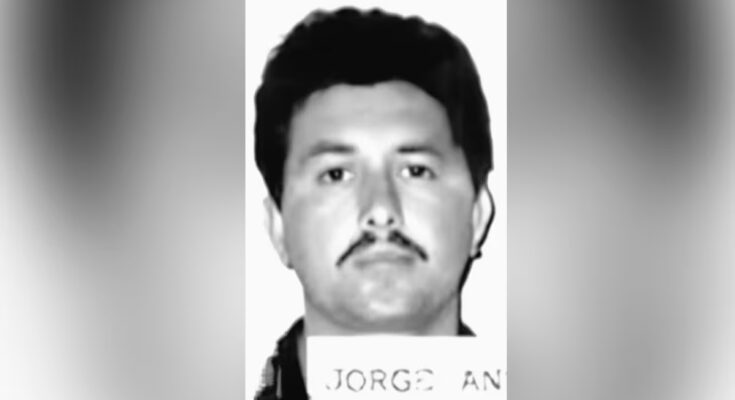The Attorney General’s Office (FGR) arrested Jorge Antonio Sánchez Ortega, former agent of the defunct National Center for Research and Security (CISEN), on Saturday afternoon in Tijuana. Sánchez Ortega has for decades been considered the alleged second assassin at the scene of the murder of Luis Donaldo Colosio Murrieta, the PRI presidential candidate in 1994. Mexican authorities have not revealed details about this weekend’s arrest, although local press reports indicate that it was due to a federal arrest warrant.
Sánchez Ortega’s arrest occurred around 5 p.m. in Los Reyes, a neighborhood 13 kilometers south of Lomas Taurinas, the site where Colosio’s famous murder occurred in March 1994 during that year’s presidential campaign. The afternoon of that day was Sánchez Ortega’s first arrest. His presence at the crime scene and his clothes stained with the politician’s blood made him one of the main suspects. Hours later, he would test positive for sodium rhodonate, which tracks residue left behind by the action of a firearm.
The then PGR, now the Prosecutor’s Office, released him on March 24, one day after the attack, after concluding that the shot that ended Colosio’s life had come from the gun of Mario Aburto, the self-confessed murderer of the former candidate. Aburto remains in prison today thanks to a Supreme Court decision and despite having won an amparo with which he would have regained his freedom after 30 years in prison.
After decades in oblivion and after the Colosio case had become final, the name of Sánchez Ortega returned to the limelight in 2024 thanks to the Prosecutor’s Office and the then president Andrés Manuel López Obrador. The president assured in July of the same year that the judiciary had refused to issue an arrest warrant against the former intelligence officer. The Morena leader insisted that Sánchez Ortega had been identified for decades as the second assassin in the assassination and that he had received state protection not to appear in the investigation.
In January 2024, the Public Prosecutor’s Office reported that it had sufficient elements to strengthen the hypothesis of the second attacker of the Colosio rally on 23 March. Those responsible for the investigation then assured that they had “a wide range of evidence” with which they could implicate Sánchez Ortega in the murder. The announcement represents a 180 degree turnaround compared to the position of the PGR itself, which had released the suspect due to a lack of elements and after taking his statement. Despite this alleged accumulation of incriminating ingredients, a district judge later refused to issue an arrest warrant against the Cisen officer.
The FGR and López Obrador linked Genaro García Luna, Felipe Calderón’s former security secretary, to the Colosio assassination plot. The officials who gave new life to the assassination claim that García Luna, then deputy director of Cisen Operations, had the responsibility to “cover up and urgently remove (Sánchez Ortega) from Tijuana.” García Luna was sentenced in October 2024 to 38 years in prison for drug trafficking and organized crime by the United States Department of Justice.
According to the file in the hands of the Prosecutor’s Office, the Cisen agent received the order to follow Colosio’s rally just three hours before the candidate landed in Tijuana. Sánchez Ortega, born in Sinaloa and living in Tijuana, had only been in the intelligence center for seven months. The next day, now suspected of the murder, the agent declared that the blood stain on his clothes was due to the transport of the candidate’s body. He also said he had not fired a gun in more than two years. Today he will face those charges again.



